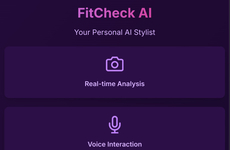
Propulse Delivers Recommendations by Analyzing Consumer Desires
Laura McQuarrie — February 24, 2017 — Art & Design
References: propulseanalytics & psfk
'Propulse' is described as the "most advanced independent e-commerce prediction tool in existence." This is because Propulse uses Big Data, deep learning, natural language processing and machine learning to discover a consumer's personal tastes, rather than only relying on cookies that reveal a shopper's purchasing and browsing history.
The AI-powered Propulse boasts that is is capable of considering more than 39,000 independent variables in order to give consumers smarter product suggestions. As CEO Eric Brassard puts it, "When you look at companies currently trying to customize online shopping experiences, you can’t help but notice a massive gap has emerged between 'personalization' and 'recommendation.'"
In the same way that consumers are able to receive highly personalized recommendations from store associates, Propulse offers the same experience, but online.
The AI-powered Propulse boasts that is is capable of considering more than 39,000 independent variables in order to give consumers smarter product suggestions. As CEO Eric Brassard puts it, "When you look at companies currently trying to customize online shopping experiences, you can’t help but notice a massive gap has emerged between 'personalization' and 'recommendation.'"
In the same way that consumers are able to receive highly personalized recommendations from store associates, Propulse offers the same experience, but online.
Trend Themes
1. AI-powered Personalization - The trend of using artificial intelligence to provide highly personalized recommendations based on deep consumer analysis presents disruptive innovation opportunities in the retail industry.
2. Big Data Analysis - The trend of leveraging big data and analyzing independent variables to understand consumer preferences can lead to disruptive innovation in the e-commerce industry.
3. Machine Learning in E-commerce - The trend of utilizing machine learning algorithms to provide smarter product suggestions opens up disruptive innovation opportunities for online retailers.
Industry Implications
1. Retail - The retail industry can benefit from adopting AI-powered personalization tools to deliver highly customized shopping experiences to customers.
2. E-commerce - The e-commerce industry can leverage big data analysis to gain insights into consumer preferences and offer relevant product recommendations, enhancing the online shopping experience.
3. Technology - The technology industry can explore the use of machine learning algorithms in e-commerce platforms to provide more intelligent and accurate product suggestions, driving customer engagement and sales.
2.3
Score
Popularity
Activity
Freshness























